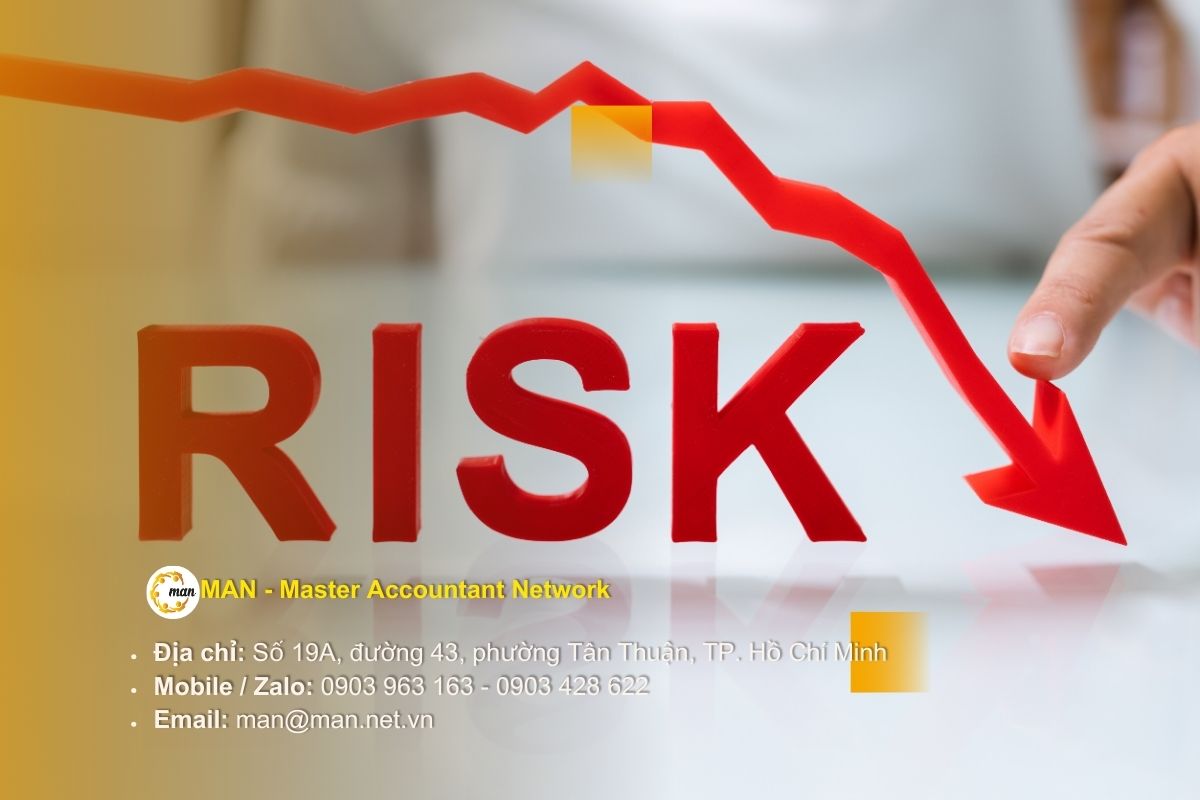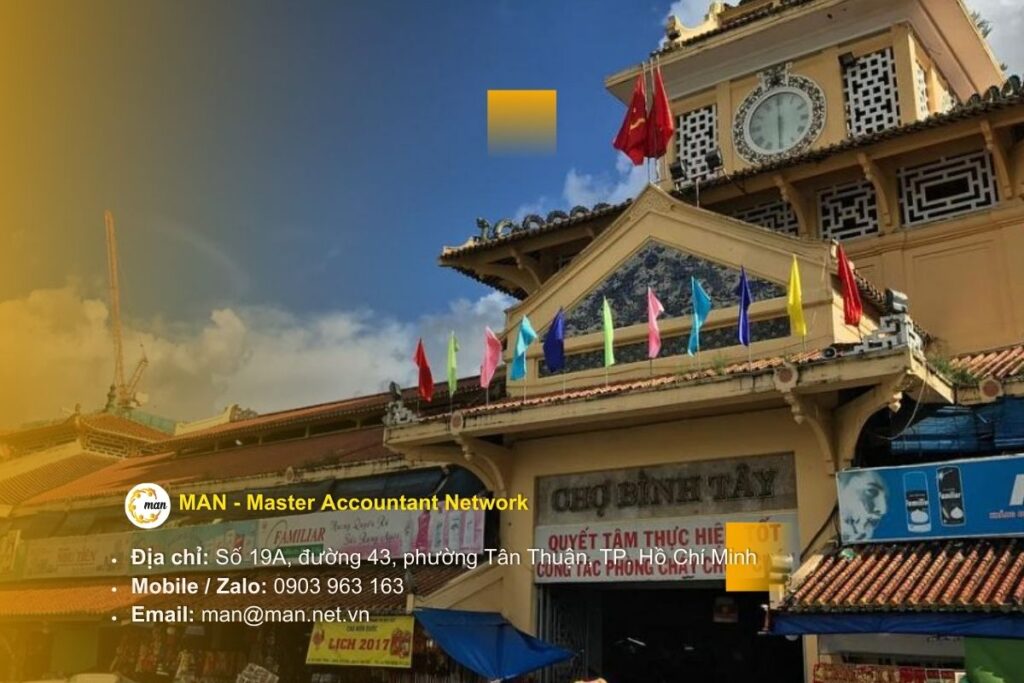Related party transactions under Decree 20/2025/ND-CP is an important legal document issued by the Government of Vietnam, focusing on amending and supplementing a number of articles of Decree 132/2020/ND-CP on tax management for enterprises with related party transactions. This Decree takes effect from March 27, 2025 and applies to corporate income tax (CIT) periods from 2024. Below, MAN – Master Accountant Network will update some notable contents in the new regulations in Decree 20/2025/ND-CP amending Decree 132/2020/ND-CP on tax management regulations for enterprises with related-party transactions.
What is affiliate trading?
According to Decree 132/2020/ND-CP, affiliate transactions are transactions arising between related parties in the production and business process. These parties can be parent-subsidiary companies, companies with one or more major shareholders, or parties with other relationships related to management, control, and capital contribution.
What is an affiliated party?
According to Decree 132/2020/ND-CP, it is mentioned that two parties are considered to have an affiliated relationship when there exists a relationship of control, capital contribution or financial dependence on executive personnel, specifically as follows:
- One party directly or indirectly holds more than 25% of the other party's equity capital, or both are held by a third party with more than 25% of capital, or one party is the largest shareholder holding more than 10% of the other party's capital.
- Guarantee or lending relationship: A guarantee or lending enterprise leads to the total outstanding loan balance of the borrower being greater than 25% of the owner's equity and accounting for more than 50% of the borrower's total medium and long-term debt.
- Personnel or executive relations: A business that appoints more than 50% members of the executive or controlling board of directors can determine the financial policies - business operations of the other business. Two businesses with more than 50% members of the executive board of directors are the same person, or are in actual management or control of each other's production and business operations.
- Head office - permanent establishment relationship; the enterprise is controlled by the same individual through capital contribution; or the enterprise has a capital transfer transaction accounting for more than 25% of the owner's capital contribution during the tax period with the individual operating and controlling the enterprise.
Important updates according to Decree 20/2025/ND-CP
According to Decree 20/2025/ND-CP amending and supplementing Clause 2, Article 5 of Decree 132/2020/ND-CP, namely the group of criteria for determining related parties:

Amending and supplementing Point d, Clause 2, Article 5 of Decree 132/2020/ND-CP
Keep the thresholdng is greater than 25% of equity and accounts for more than 50% of total medium- to long-term debt as per Decree 132/2020/ND-CP, but with the following exceptions:
- Not applicable when the guarantor or lender is a credit institution under the Law on Credit Institutions and does not participate in the management, control, capital contribution and investment in the borrowing enterprise (or the borrowing enterprise is not guaranteed by a credit institution under other points of Clause 2, Article 5).
- Not applicable when the loan guarantor is a credit institution and the borrowing enterprise (or guarantor) does not fall into other affiliated relationships specified in points b, e,… of Clause 2, Article 5.
According to the new regulations, some cases will no longer be subject to the criteria at Point d, Clause 2, Article 5 of Decree 132/2020/ND-CP. Specifically, from March 27, 2025, loans from banks, regardless of their value equal to or greater than 25% of equity and accounting for more than 50% of the total value of medium- and long-term debts of the enterprise, will not be considered as affiliated relationships if they satisfy one of the two conditions:
- The Bank does not directly or indirectly participate in the management, control, capital contribution or investment in the borrowing enterprise.
- The relationship between the bank and the borrowing enterprise does not have a direct or indirect connection under the management, control, capital contribution or investment of another third party. This provision helps to exclude purely credit relationships with credit institutions from the scope of related transactions, reduce the declaration obligation for enterprises and ensure that the determination of related relationships reflects the true nature of control and domination between the parties.
Amending and supplementing point k, clause 2, Article 5 of Decree 132/2020/ND-CP
Point k, Clause 2, Article 5 of Decree No. 132/2020/ND-CP is amended as follows:
“Other cases in which an enterprise (including an independent accounting branch that declares and pays corporate income tax) is subject to the actual management, control, and decision-making on the production and business activities of the other enterprise"
Supplement point m, clause 2, Article 5 of Decree 132/2020/ND-CP
Point m, Clause 2, Article 5 of Decree No. 132/2020/ND-CP is amended as follows:
“Credit institutions with Subsidiaries or with Controlling Companies or with Affiliated Companies of credit institutions as prescribed in the Law on Credit Institutions and amendments, supplements or replacements (if any)”
Source: Law Library
Obligation to declare and file
According to Decree 132/2020/ND-CP, which is maintained and clarified in Decree 20/2025/ND-CP, all enterprises subject to declaration of related-party transactions must prepare and submit a Declaration of information on related-party relationships and related-party transactions according to Form No. 01 issued with the Decree.

This declaration consists of three main parts: general information about the taxpayer such as name, tax code, head office address, business lines, tax period; information about related parties including name, tax code, country of residence, type of relationship (such as capital ownership, loan, management, personnel, family) and time of occurrence; along with detailed information about related transactions arising during the period, transaction value, as well as the method of determining price applied by the enterprise.
Enterprises must submit this declaration at the same time as submitting the annual corporate income tax settlement, usually on March 31 of the following year, through the General Department of Taxation's Electronic Information Portal. Late submission, incorrect submission or non-submission may result in administrative penalties and the risk of tax assessment by the tax authority.
In addition to the declaration, enterprises must also prepare documents to determine transfer pricing, including three levels according to the following instructions:
- The first is the national file (Local file) with detailed information on the activities and related transactions of the enterprise itself in Vietnam, analysis of functions - risks - assets of related parties, comparison with market data and explanation of pricing methods.
- The second is the Master file for businesses that are members of multinational corporations, providing a comprehensive view of organizational structure, business operations, transfer pricing policies, intangible assets, profit allocation and consolidated financial statements.
- Finally, the Country-by-Country Report (CbCR, Form No. 03), applicable to multinational corporations with consolidated revenue of VND 18,000 billion or more, reflects the allocation of revenue, profit, tax, personnel and tangible assets according to each country where the corporation operates.
The valuation dossier must be prepared and completed before the time of submitting the tax finalization declaration. Although it does not need to be submitted immediately, it must be ready to be provided to the tax authority within 15 working days from the date of receiving the request, and stored for at least 10 years at the enterprise. Decree 20/2025/ND-CP does not change the structure of the declaration or dossier, but clarifies the criteria for determining related parties, excludes purely bank loans from the scope of related parties, and adds independent accounting branches under actual control to the scope of related parties, helping the declaration and preparation of dossiers to more closely reflect the nature of the transaction and the relationship between the parties.
Fully declaring and documenting transfer pricing not only helps businesses comply with the law but is also an important measure to avoid legal and tax risks. However, if these obligations are not properly implemented, businesses will face serious sanctions from tax authorities. Let's find out with MAN - Master Accountant Network right away.
However, if businesses do not properly fulfill these obligations, the risk of being subject to strict sanctions from tax authorities is very high. Let's explore with MAN - Master Accountant Network how to handle and optimize tax obligations right below.
Sanctions and risks of violation.
Violations of regulations on related-party transactions can lead to serious legal and financial consequences, directly affecting the business operations and reputation of the enterprise. One of the most common risks is the collection of corporate income tax. If the enterprise does not declare fully, prepares incorrect records or applies incorrect valuation methods, the tax authority has the right to re-determine taxable income, thereby collecting the tax payable plus late payment interest. In many cases, this amount can be up to billions of VND, especially for large transactions or enterprises of group scale.

In addition to tax collection, businesses also face administrative penalties. Violations may include failure to prepare or submit transfer pricing declarations, failure to maintain records as required, or false declarations of related party information and transaction prices. Penalties can range from several million to hundreds of millions of VND depending on the severity of the violation, and in some serious cases, tax authorities may also apply additional measures to ensure tax obligations are met.
In addition to direct fines, non-compliance with regulations on related-party transactions also creates reputational risks and business cooperation. Partners, investors and banks may perceive the enterprise as lacking transparency, thereby affecting opportunities for loans, investment cooperation or participation in new business projects.
In short, the sanctions and risks of violating regulations on related-party transactions are not only financial issues but also directly related to the reputation, risk management and long-term development strategy of the enterprise. Preparing complete declarations, standardizing valuation records and applying the correct method of determining the price of related-party transactions are the most effective ways for enterprises to protect themselves against these risks.
See details at: Related transactions according to Decree 20/2025/ND-CP
Thus, non-compliance with regulations on related-party transactions not only causes businesses to be subject to administrative fines and tax arrears, but also directly affects their reputation and business opportunities. On the contrary, full compliance helps businesses operate transparently, reduce legal risks and optimize tax obligations. To ensure accurate declaration and filing according to the latest regulations, businesses should immediately contact Man – Master Accountant Network for more detailed advice on the service.
Faced with increasingly stringent regulations on related-party transactions, accurate declaration and documentation not only helps businesses avoid legal risks but also optimize tax obligations. To achieve this effectively, businesses can contact MAN – Master Accountant Network. With a team of experienced experts, MAN will provide detailed advice and optimal solutions, helping to operate transparently and safely.
Contact information MAN – Master Accountant Network:
- Address: No. 19A, Street 43, Binh Thuan Ward, District 7, Ho Chi Minh City.
- Mobile/zalo:+84 (0) 903 963 163 or +84 (0) 903 428 622
- Email: man@man.net.vn
Editorial Board: MAN – Master Accountant Network




